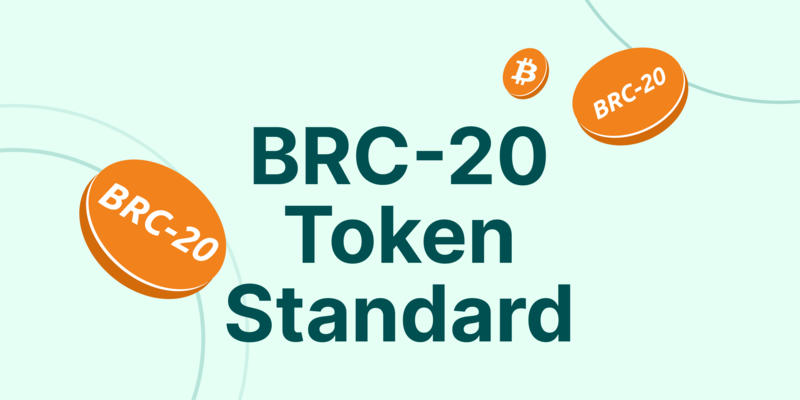Understanding What is KYC and Its Importance in Financial Services

In an era marked by rapid technological advancements and increasing globalization, the necessity for robust methods to ascertain the legitimacy of clients has never been more critical. Businesses in the monetary realm face numerous challenges, from potential fraud to regulatory compliance, which can profoundly impact their operations and reputation. Ensuring that institutions have mechanisms in place to validate the identity of their customers is an essential aspect of safeguarding their organizations.
The practice of verifying client identities serves multiple purposes, ranging from mitigating risks associated with illicit activities to fostering trust among consumers. By adopting comprehensive protocols, companies can not only protect themselves but also contribute to a more transparent and secure marketplace. This approach ultimately enhances customer confidence and fosters long-lasting relationships built on trust.
Moreover, the role of regulatory bodies in establishing guidelines for identity verification cannot be overstated. These regulations aim to create a framework within which financial entities must operate, ensuring that they prioritize integrity and accountability. Adhering to such standards is not merely a legal obligation; it is a cornerstone of sustainable business practices in today’s competitive landscape.
What is KYC in Finance?
In the world of monetary transactions and services, verifying the identity of clients is crucial for building trust and ensuring security. This practice serves as a shield against various illicit activities and fraud. Institutions adopt specific protocols to gather pertinent information about their customers, enabling them to operate within legal frameworks while maintaining the integrity of their operations.

Key Objectives
The primary goal of this process is to establish a clear profile of the customer, which includes personal details, financial background, and the nature of their transactions. By assessing this information, organizations can mitigate risks and comply with regulatory requirements. Furthermore, it fosters transparency and builds a reliable relationship between the service provider and the clientele.
Benefits to Institutions
Implementing such verification measures helps organizations detect suspicious activities at an early stage, thus preserving their reputation. Additionally, it allows them to tailor services according to the customer’s profile, enhancing personalization and customer satisfaction. Overall, these practices contribute to a more secure economic environment where both businesses and clients can engage with confidence.
The Role of KYC in Risk Management
In today’s financial landscape, the practice of client verification plays a crucial part in safeguarding institutions against various types of risks. This process helps organizations to effectively identify and assess potential threats posed by clients, thus minimizing exposure to fraud, money laundering, and other illicit activities. By implementing robust identification measures, firms can establish a strong foundation for maintaining compliance with regulatory requirements.
Assessing client information allows entities to gauge the risk profile associated with each individual or organization. This proactive approach enables them to detect any anomalies or red flags early in the engagement process. Timely identification of these risks empowers businesses to take necessary actions, such as increasing scrutiny on suspicious accounts or altering their engagement strategies, ultimately protecting their reputation and financial stability.
The integration of comprehensive client knowledge also facilitates the development of tailored risk management frameworks. By classifying clients based on their risk level, institutions can allocate resources efficiently, focusing on high-risk segments that require more rigorous monitoring. This categorization leads to better decision-making and enhances an organization’s ability to mitigate potential threats effectively.
Moreover, the relationship between client verification processes and ongoing vigilance cannot be overstated. Continuous monitoring of client behaviors and transactions ensures that organizations remain alert to evolving risks. By maintaining up-to-date records and conducting periodic reviews, companies can adapt their strategies to counter emerging threats, ensuring long-term sustainability and trust within the financial ecosystem.

Key Regulations surrounding KYC Processes
The framework governing client identification and verification is essential in today’s financial landscape. These guidelines serve to enhance security measures and protect institutions from illicit activities. The adherence to specific legal standards helps create a trustworthy environment for both consumers and providers of services.
International Guidelines
Global entities, such as the Financial Action Task Force (FATF), set forth recommendations aimed at combating money laundering and terrorist financing. These principles encourage jurisdictions to implement stringent verification practices. Nations often tailor their laws in accordance with these overarching standards to ensure compliance and enhance their financial systems’ integrity.
Regional Legislation
Different regions have established their own regulatory frameworks that expand on international guidelines. For instance, the European Union enforces the Anti-Money Laundering Directive, which mandates rigorous customer due diligence and risk assessment measures. Similarly, the USA has the Bank Secrecy Act, which obligates financial institutions to report suspicious activities and maintain comprehensive records. Such legislation reinforces the commitment to create secure and transparent financial networks.
Challenges in Implementing KYC Policies
The journey of establishing effective identity verification procedures is fraught with various obstacles. Organizations often encounter multiple issues that hinder their ability to comply fully with regulations intended to prevent illicit activities and protect financial integrity. A comprehensive overview reveals the most prevalent hurdles faced in this endeavor.
| Challenge | Description |
|---|---|
| Data Privacy Concerns | Collecting and storing sensitive personal information raises significant privacy issues. Businesses must ensure compliance with data protection laws, adding complexity to their operations. |
| Technological Limitations | Many organizations struggle with outdated systems that lack the capability to efficiently manage and analyze data required for thorough customer assessments. |
| Cost Implications | The financial burden of implementing comprehensive verification systems can be daunting, especially for smaller entities that may lack adequate resources. |
| Regulatory Variability | Differences in regulations across jurisdictions create challenges for entities operating in multiple regions, leading to potential compliance gaps. |
| Customer Resistance | Some clients may view verification procedures as intrusive, resulting in negative sentiments and reluctance to engage with organizations that enforce strict policies. |
Recognizing and addressing these obstacles is crucial for organizations striving to establish robust procedures while maintaining client trust and adhering to legal frameworks.
Benefits of Effective KYC Compliance
Implementing robust identity verification processes brings numerous advantages to financial institutions. These practices not only enhance organizational integrity but also foster a secure environment where businesses can thrive. By prioritizing thorough customer assessments, companies can navigate regulatory challenges more efficiently.
One significant advantage is the mitigation of risks associated with money laundering and fraudulent activities. By verifying the identities of clients, organizations can detect suspicious behavior early, thus protecting their assets and maintaining their reputations. Such proactive measures contribute to a safer market for all stakeholders involved.
Additionally, adhering to well-defined identification protocols can lead to improved customer relationships. Clients appreciate transparency and the assurance that their personal information is safeguarded. This trust can enhance customer loyalty, ultimately promoting long-term business success.
Moreover, compliance with regulatory frameworks can reduce operational costs. By avoiding penalties associated with non-compliance, businesses can allocate resources more effectively. A strategic approach to customer verification can streamline operations, resulting in increased efficiency.
Lastly, a focus on strong identity management can enhance a firm’s competitive advantage. Companies that invest in thorough compliance measures are more likely to attract clients who prioritize security. This can position them favorably in a crowded marketplace, ensuring growth and sustainability.
Future Trends in KYC Practices
The evolving landscape of regulations and technology continues to shape the methodologies used for customer identity verification. As financial institutions adapt to these changes, several key trends are emerging that promise to redefine the ways organizations approach their verification processes.
- Automation and AI Integration: The growing reliance on artificial intelligence will streamline processes, reducing manual effort and enhancing accuracy. Automation can facilitate real-time monitoring, making it easier to flag suspicious activities.
- Biometric Verification: The adoption of biometric technologies such as facial recognition and fingerprint scanning is anticipated to increase. These methods provide secure and convenient alternatives to traditional identification documents.
- Blockchain Technology: The utilization of decentralized ledger technology could play a pivotal role in maintaining secure and tamper-proof records of customers’ identities, promoting trust and transparency.
- Enhanced Data Privacy Measures: As data protection laws tighten globally, firms will need to implement more robust privacy frameworks. This includes ensuring compliance with regulations like GDPR while still efficiently managing identity verification.
- Collaborative Ecosystems: Partnerships between financial institutions, technology providers, and regulatory bodies may foster innovative solutions. Shared resources could lead to improved data sharing and risk management strategies.
Organizations that embrace these trends will not only comply with existing regulations but also enhance their operational efficiency and customer experience. The future of identity verification holds the promise of being more secure, streamlined, and customer-friendly.

Q&A: What is kyc
What is the purpose of a kyc check, and why is it essential for financial institutions?
A kyc check ensures that a financial institution must verify customer information, including identity documents like an id card and proof of address, to prevent fraud and comply with kyc regulations. This process is essential to maintain compliance requirements, mitigate financial crimes, and establish secure business relationships.
Which kyc documents are typically required for compliance with kyc regulations?
Mandatory kyc documents include a government-issued id card, proof of address, and other forms of identity verification. These documents are vital for the process of verifying the customer’s identity and ensuring compliance with kyc and aml regulations.
How does the process of identifying and verifying customers help prevent fraud?
The process of identifying and verifying customers through document verification and kyc forms helps financial institutions detect and mitigate fraudulent activities. By implementing a thorough kyc process, institutions ensure they comply with kyc regulations and reduce risks associated with identity theft and money laundering.
What are the primary components of kyc, and how do they ensure compliance?
The primary components of kyc include customer identification procedures, document verification, and continuous monitoring of customer activities. These steps ensure compliance with kyc compliance requirements and help financial institutions follow legal and regulatory frameworks.
Why is kyc in banking crucial for maintaining compliance requirements?
Kyc in banking is crucial because it ensures that financial institutions comply with know your customer and aml regulations. By conducting kyc checks and adhering to updated kyc requirements, banks can safeguard their systems, maintain legal compliance, and offer a secure customer onboarding experience that complies with international standards.
Why is the customer identification program a critical component of financial institutions?
The customer identification program is a critical component of financial institutions because it helps verify the identity of a customer, ensuring compliance with know your customer compliance and anti-money laundering regulations. By verifying identity documents and proof of address, financial institutions can prevent identity fraud, reduce the risk of fraud, and maintain a secure business relationship with their customers.
What are the minimum kyc requirements for opening an account with a financial institution?
The minimum kyc requirements for opening an account with a financial institution typically include providing government-issued id, proof of address, and other identity documents. These documents are part of the kyc procedure to ensure the customer is who they claim to be and comply with kyc and aml regulations.
How does online kyc enhance the customer onboarding process?
Online kyc enhances the customer onboarding process by using automated kyc solutions and digital identity verification methods, such as video kyc and face verification. This creates a seamless onboarding experience that complies with kyc regulations while reducing the time and effort required to verify a customer’s identity.
What role does kyc verification play in fraud prevention?
Kyc verification plays a vital role in fraud prevention by verifying the information provided by the customer, ensuring the identity of a customer, and monitoring customer activities for suspicious behavior. By following kyc and aml regulations, financial institutions can reduce the risk of fraud and other financial crimes.
Why is it mandatory for financial institutions to comply with kyc regulations?
It is mandatory for financial institutions to comply with kyc regulations because these requirements help prevent money laundering, identity fraud, and financial crimes. Compliance with kyc standards, as outlined by the Patriot Act and financial crimes enforcement network, ensures financial institutions can maintain legal and regulatory integrity while protecting their customers and assets.



